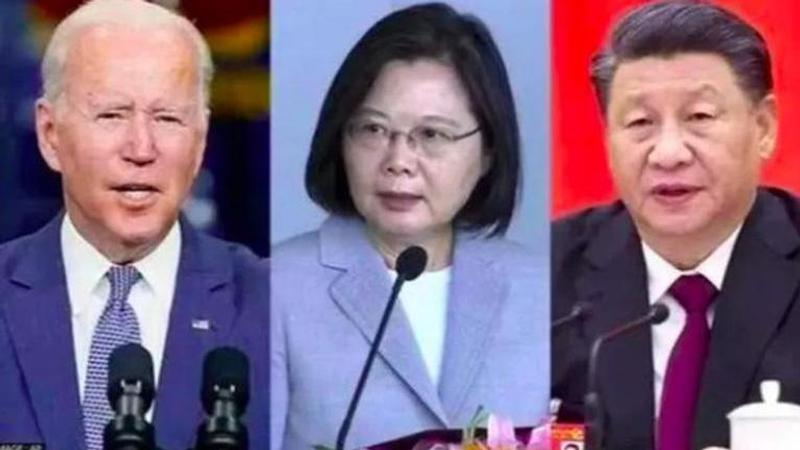Published 06:56 IST, September 4th 2022
Taiwan thanks US for approving arms package for Taipei amid China's military threats
The arms package includes 60 Harpoon anti-ship missiles, as well as 100 Sidewinder missiles for warplanes which were approved by the State Department.

In an effort to bolster Taiwan’s defences, the United States on Saturday approved more than $1 billion in the largest military package of advanced weapons and military logistics for the self-administered island to tackle belligerent China. The arms package includes 60 Harpoon Block II anti-ship missiles that sink war vessels and 100 Sidewinder missiles for warplanes' air-to-air firepower. The US has approved an additional $665 million in logistics support contracts for Taiwan’s surveillance radar, Pentagon's Defense Security Cooperation Agency (DSCA) said in a statement.
Boeing Co. Raytheon is the principal contractor for Sidewinder missiles used for air-to-air and surface attacks and Taiwan's surveillance radar programme at a cost of an estimated $665.4 million. The package also includes the upgradation of a Raytheon early radar warning system of Taiwan that has been in operation since 2013. Taiwanese Presidential Office spokesman Chang Tun-han, in a statement, expressed indebtedness to the government of the United States, saying that the island is thankful for Washington's continued support for its security.
"This arms sale will not only help our soldiers fight against grey zone coercion, it will also enhance the island's early warning capabilities against long range ballistic missiles," Taiwanese Presidential Office spokesman Tun-han said.
The military package was warranted despite Beijing threatening "counter-measures" should the Biden administration proceed with the sale of weapons. China believes that the supply of arms to Taiwan will not only jeopardize regional stability but would also dismantle ties between Washington and Beijing to an all-time low. Chinese authorities have been demanding that the US "immediately revokes" the arms sales.
A spokesman for the Chinese embassy in Washington, Liu Pengyu, in an official communique stated that weapons supply sends wrong signals to 'Taiwan independence' separatist forces, and "severely jeopardizes China-US relations and peace and stability across the Taiwan Strait."
"China will resolutely take legitimate and necessary counter-measures in light of the development of the situation," China's US embassy spokesperson Liu Pengyu has warned in a presser.
Infuriated China might respond
An increasingly infuriated China might respond as tensions have been simmering with its adversary United States over ignoring a series of warnings, including US House Speaker Nancy Pelosi and Congress member Marsha Blackburn's Taiwan visit, Taiwan’s firing of shots at a Chinese drone, United States Navy warships—guided-missile cruisers USS Antietam and USS Chancellorsville— transiting via Taiwan Strait among many other escalations.
Denying that the new package would bolster or encourage the anti-China forces in the self-ruled island nation which PRC considers its own breakaway territory, a State Department spokesman said: "These proposed sales are routine cases to support Taiwan’s continuing efforts to modernize its armed forces and to maintain a credible defensive capability."
“We urge Beijing to cease its military, diplomatic and economic pressure against Taiwan and instead engage in meaningful dialogue with Taiwan," US State Department spokesperson stressed in a statement.
The British Foreign Secretary Liz Truss had hurled the idea of supplying defensive weaponry to Taiwan to counter China's aggression well in advance to prevent a Ukraine war-like scenario. Weeks after Russia invaded Ukraine, Truss renewed her calls for NATO to "make clear to China" that invading Taiwan like Russia invaded Ukraine would be “a catastrophic miscalculation" in Asia. She called on NATO to boost security in the Indo-Pacific region. We need to pre-empt threats in the Indo-Pacific, working with allies like Japan and Australia to ensure that the Pacific is protected. We must ensure that democracies like Taiwan are able to defend themselves," she had stressed.
Updated 06:56 IST, September 4th 2022




